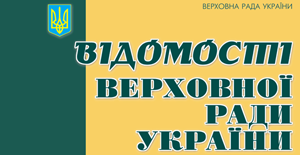“It’s been a long-expected victory of Ukraine at the Court of Amsterdam! The Scythian gold will return to Ukraine. I’m grateful to the court for its fair decision. We always recover what belongs to us. At first we are going to return the Scythian gold and then it will be the Crimea,” said President Volodymyr Zelenskyy of Ukraine, commenting on the decision of the Court of Appeals of Amsterdam passed on October 26.
In accordance with the court’s ruling, the collection of the Scythian gold artifacts will have to be returned to Ukraine and not to the Crimean peninsula which is currently occupied by the Russian Federation.
The subject-matter of the dispute is the collection of 565 priceless artifacts presented by several Crimean art museums.
In early 2014, the collection was sent to Amsterdam to be displayed at the Allard Pierson Museum. At that time, the Crimea was captured by the Russian troops. And since then, the gold artifacts have been contested in court.
The collection of the Scythian gold is a unique archeological find. It includes old weapons, precious stones, and adornments of ancient nomadic people. For instance, the old Scythian helmet which is over 2,000 years old is one of the most valuable exhibits on the display. The total cost of the collection runs to several million euros.
After the annexation of the Crimea by Russia, the Netherlands has refused to return the exhibits to the Crimean museums giving the reason for the refusal that the collection was brought to Amsterdam from Ukraine not Russia.
Meanwhile, the Ministry of Culture of the Russian Federation insisted on the collection to be handed over in its possession. Four Crimean museums filed a collective complaint demanding to return the exhibits. In response, the Ukrainian authorities declared that the artifacts were not the property of the Crimean museums, but that they belong to the Ukrainian state. On December 14, 2016, the Amsterdam Circuit Court ruled to return to Ukraine the collection that had been on display called “The Crimea: the Gold and the Mysteries of the Black Sea”.
In March of 2017, representatives of the Crimean museums filed an appeal to the Court of Appeals of Amsterdam against the circuit court’s decision with regard to the case “The Scythian Gold”. During the proceedings, Ukraine called on the court of law not to violate the 1970 Convention of UNESCO by handing over the Ukrainian cultural heritage to the country-aggressor. The representatives of the Crimean museums failed to answer the question whom they represented, Ukraine as the owner of the collection of the historical valuables or Russia as the country-invader.
In July of 2019, the Amsterdam Court of Appeals again deferred the final decision until a later date. And, finally, the decision was made last Tuesday in favor of Ukraine.
Although the Kremlin has announced earlier that “they would like to have the collection back from Amsterdam to the Crimea”, the final decision of the Court of Appeals has remained without their comments. Dmitri Peskov, the press secretary of the Russian President, was rather brief in answering questions of journalists at a news conference. He said, “No comment”.
Nevertheless, it has become known that Russia is going to file an appeal to the Supreme Court of the Netherlands against the decision of the Amsterdam Court of Appeals on the Scythian gold.
The newspaper Voice of Ukraine








